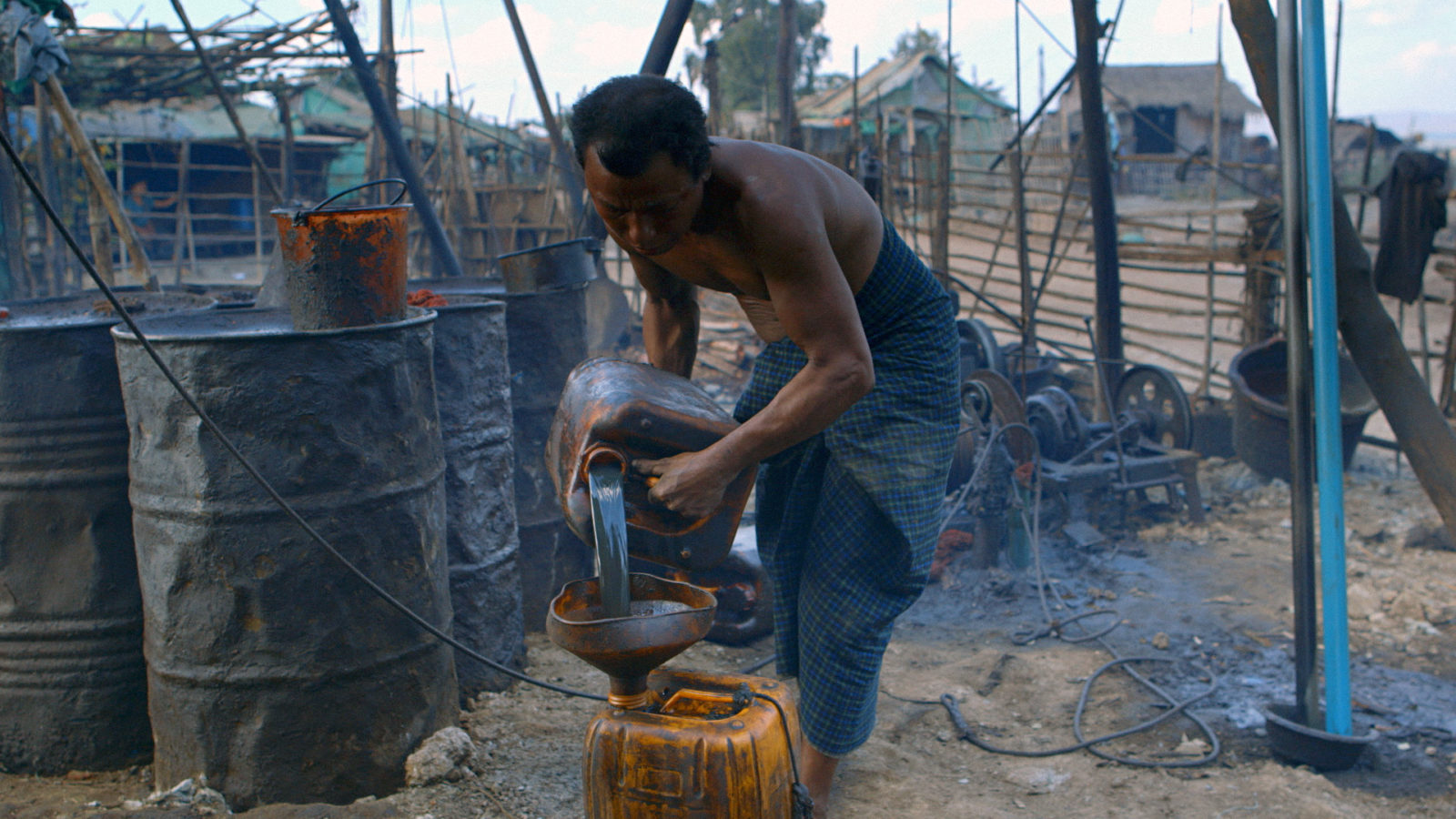The tour will celebrate the UNESCO world heritage status of the North West Wales slate landscape, giving Welsh audiences an opportunity to learn more about Wales’ lesser-known connections to the Atlantic Slave Trade.
Together with the Screen and Sound Archive at the National Library of Wales, Film Hub Wales (FHW) have developed a touring programme of Welsh archive shorts and feature films highlighting the history of slate mining in Wales, its impact on local communities and connections to wider colonial projects led by the British empire. The package includes a range of films from Slate Quarrying (1946) which depicts working life in the 1200 ft deep Penrhyn Slate Quarry, Bethesda, to Cut Me Loose (1998), a personal film which was written and presented by the rap poet and historian David Brown, of mixed Black Jamaican and White Welsh descent.
To launch the conversation, FHW also brought together a panel of specialist speakers, Yvonne Connikie (film curator), Abu-Bakr Madden Al Shabazz (historian and cultural anthropologist), Charlotte Williams (author of Sugar and Slate) and Emlyn Roberts (former miner). Audiences can access the conversation via participating cinemas.
AbuBakr explains the importance of addressing Welsh history on screen:
“Seeing Welsh history documented on screen, actually shows the richness this nation’s past has on its social and political development of the 21st century. Wales as a nation, and Welsh history as a subject matter, has an old multicultural society due to its links to trade and commerce before and during industrialisation. Depicting the multicultural dimension of Welsh society will maintain the accuracy in recording our historical past, showing the inclusivity of our modern nation and what all groups have contributed over time.”
The project was developed following the announcement in July 2021 that UNESCO World Heritage Site status was given to the slate landscape of North West Wales. The season reflects on the traditional rural environments, mountains and valleys of North-West Wales where quarries, mines and railways were created during the Industrial Revolution. As slate was transported to countries all over the world, the agricultural landscape of Wales was transformed alongside communities who lived there – schools, shops and entire towns were built, establishing livelihoods for those who worked in the quarry mines, for over 200 years.
The slate mines of North Wales are also connected to a more violent history as much of the wealth generated by slave owners, such as Lord Penrhyn, was used to expand the mines and even build some Welsh towns and cities. The season is designed to explore Wales’ complicated position as a colonial subject and beneficiary of the wealth generated by the British Empire through slate production.
Hana Lewis, Film Hub Wales’ Strategic Manager, explains:
“The UNESCO World heritage announcement is significant for Wales. It gives us an extraordinary opportunity to celebrate our proud history of slate mining on screen, through a fascinating collection of films. It’s also essential that we look deeper and give context to lesser-known stories around working class labour and the Atlantic Slave Trade. The tour gives audiences a chance to discover elements of Welsh culture that are fundamental to who we are.”
Cinema across Wales are planning themed activities across the year. In Blaenau Ffestiniog, home to Llechwedd Slate Caverns, Cellb are planning a Quarry Film Festival with 2 weekends of slate themed activities. They will connect audiences to quarry men who worked in the slate mines and explore conversations about the Penryn and Pennant families and their connections to slavery.
Iola Baines, National Library of Wales Screen and Sound Archive’ adds:
‘‘The Archive works hard to ensure that Welsh audiences of all ages can access their screen heritage. We’re excited to work with Film Hub Wales to bring ‘A Roof of Slate for Every House’ to life – from the archival shorts showcasing the lives of quarry workers, to ‘The Quarryman’ (the first ever Welsh talkie) and the documentaries linking slate and colonialism. These films highlight important Welsh people, places and events that must never be forgotten. Welsh archival film is our future as well as our past – it’s how generations to come will be able to access their culture and history. It’s crucial that our work remains well-resourced and accessible to the public through cinemas.’’
Audiences can keep up to date with news of the upcoming releases on the Made in Wales section of Film Hub Wales’ website or by following @Filmhubwales on social media.









Leave a Reply
View Comments